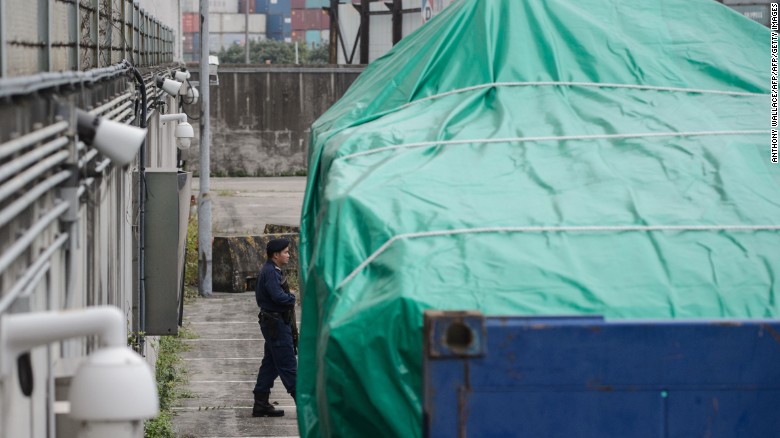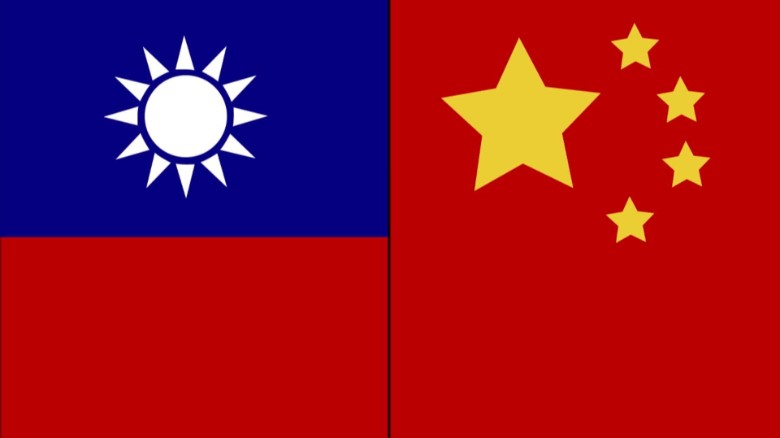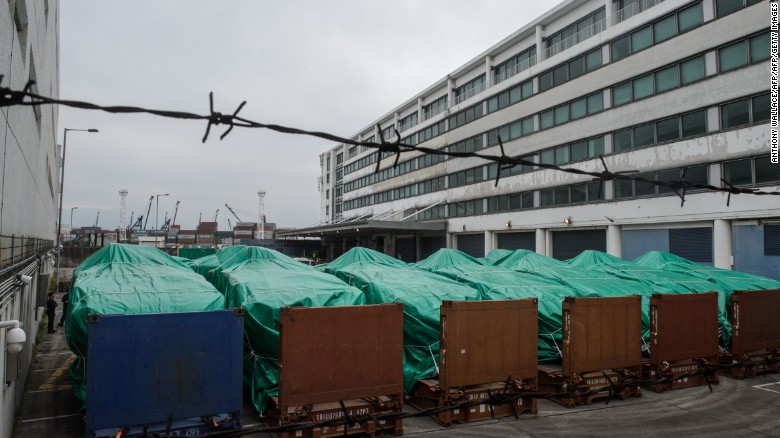Troop carriers seized: Is China sending Singapore a message?
Singapore is scrambling to recover nine armored troop carriers that have been impounded in Hong Kong for a week after they were used in a military training exercise in Taiwan.
Singapore's Ministry of Defence said the shipment of Terrex infantry carriers had been delayed on November 23 during a routine inspection by Hong Kong Customs. Local media reports have suggested the seizure was at Beijing's request.
It certainly earned Singapore a unusual public reprimand from China.
"China opposes any country with which it has established diplomatic ties from conducting any official exchanges, including military, and cooperation with Taiwan. We urge the Singapore government to keep its promise to the One China principle," Geng Shuang, a spokesman for Ministry of Foreign Affairs said Monday.
Singapore's Defense Ministry said the vehicles were used "in routine overseas training and shipped back via commercial means as with previous exercises" and no ammunition was on board. A Singapore Armed Forces team has been allowed to inspect the vehicles, which were then resealed.
"Our training overseas has never been secret. People know where we train, openly," Defense Minister Ng Eng Hen said Tuesday.
He added that Singapore had played a positive role in improving cross-strait relations between China and Taiwan.

Analysts say the seizure of the military vehicles may be designed to send a message to Singapore.
Teaching Singapore a lesson?
Zhang Baohui, a professor of political science at Hong Kong's Lingnan University, said that Singapore had a long-standing defense ties with Taiwan and has often used the island for training drills given a lack of space in the crowded city state.
"I don't think that China has given Singapore a public rebuke for this before," Zhang said. "I think the real issue is that China thinks Singapore has turned into a quasi US ally."
"In the context of deteriorating relations, it could be a Chinese strategy to teach Singapore a lesson and a way to indicate their unhappiness," he added.
Singapore has strengthened military ties with the US and taken a tough stance on the South China Sea dispute, urging China to abide by an international tribunal that ruled its claims to the waters were unlawful, said Zhang.
It's also been a strong advocate of the Trans Pacific Partnership (TPP) trade deal, which Beijing spurned, and China's Global Times newspaper has been involved in a public spat with the Singapore government.
On Tuesday, the newspaper said the impounded vehicles should be confiscated and melted down.
Taiwan's Defense Ministry declined to comment, saying the troop carriers didn't belong to its military.
Singapore's Ng said that hoped the reasons for the vehicles' seizure would be made clear after a meeting Tuesday between Hong Kong officials and the commercial shipping carrier APL.
Hong Kong's Customs and Excise Department said the case is under investigation.

'One China,' explained
Role model?
Singapore has long played a mediator position in confrontations between China and Taiwan, which are divided by decades of tension after separating in 1949, and hosted a landmark meeting between their leaders last year.
What's more, Singapore, with its brand of government-led capitalism, has also been held up as a role model in China, especially under Lee Kuan Yew, whose vision was said to have inspired China's economic rise.
But Yvonne Chiu, an assistant professor at Hong Kong University, says that China's relationship with Singapore has soured -- just as other Asian neighbors like the Philippines and Malaysiaappear to be pivoting away from the US to Beijing.
"Singapore prides itself on its rule of law and its place in the international community and this complicates China's interests and what happens in its sphere of influence," she said.
Chiu added that Beijing was also likely sending a warning signal to Taiwan's new President Tsai Ing-wen, who is from a traditionally pro-independence party.
Tsai is trying to lessen Taiwan's economic reliance on China and develop stronger ties with southeast Asian countries -- under a "go south" policy. Singapore is the only southeast Asian country to have forged a trade deal with Taiwan.
"It seems like Beijing is starting to feel it needs to be more heavy handed and nip these things in the bud," said Chiu.
News Courtesy: www.cnn.com











